
by Lural Ramirez | Oct 20, 2018

There are a number of events we hold at Futuro Verde each year – events to look forward to from year to year and events which highlight our unique school culture, our students’ talents and creativity and our focus on sustainability and critical thinking. Each December, as the school year comes to a close, we hold a beautiful whole school celebration called RAP: Respeto, Armonia y Paz. This event began in 2016 with the intention to bring together our diverse school population with a showcase of memorable dances, music, theatre presentations, lyrical poetry and much, much more!
This year’s event is scheduled for Friday, December 7th and will include the same quality of unforgettable performances plus some additional surprises not to be missed, including special presentations from two of our graduating classes- Prepa and 9th grade.
We ask parents to help us in two ways as we prepare for this fun-filled event:
- Please encourage your child to actively participate in the event!
- Please plan to attend the day’s event as an audience member by setting aside the date now in your social and work calendar!
Thank you and see you at RAP 2018 on Friday, December 7th!
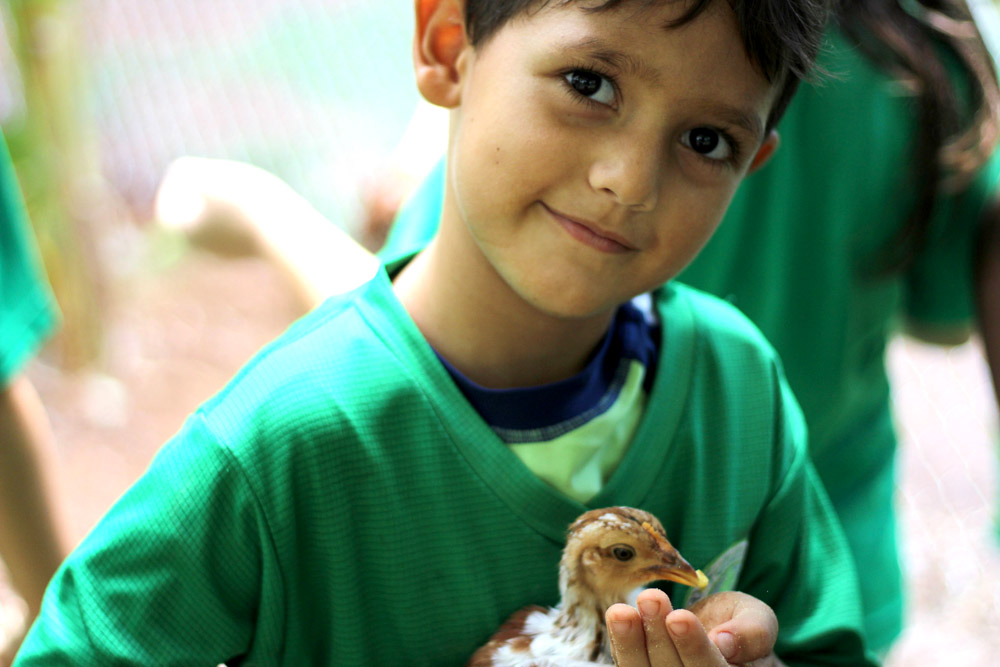
by Angie Briceño | Oct 19, 2018

Did you know that Futuro Verde receives support from people around the world and in different ways? Some make their donation only once to support a specific project, others are interested in annual campaigns and others, like the character of this article, donate monthly to support all the campaigns of the school.
We love to know a little more about the people who support us and follow our work from other places, that is why we gave ourselves the goal of knowing a little more about where they come from and what some of our donors are doing.
On this occasion, we had the pleasure of meeting Holly Scheuer, native from Texas who fell in love with the area of the Nicoya Peninsula, which is how she learned about Futuro Verde.
Holly is also a teacher in a school in Texas and that is why Futuro Verde has caught her attention. In our interview, Holly mentioned that what she liked the most about Futuro Verde is that students are not only learning, but that they are learning in a creative way and most importantly they are exposed to a constant social responsibility, which is what we need in our classes nowadays.
For Holly, as a teacher and as a citizen of the world, the most important thing that she believes that schools should be teaching children and young people is about our Earth, our world and how to take care of it, she told us how she believes that Futuro Verde is doing a great job achieving this goal, it is for this and for her belief that all children must be learning in the classroom that Holly gives support to Futuro Verde from afar.
We are confident that we will continue to collaborate with Holly or “Ardilla” as her students in Texas call her in the future.
Thanks to Holly and all our collaborators for making possible the dream of education!
If you would also like to collaborate, click here to find out your best way to help!
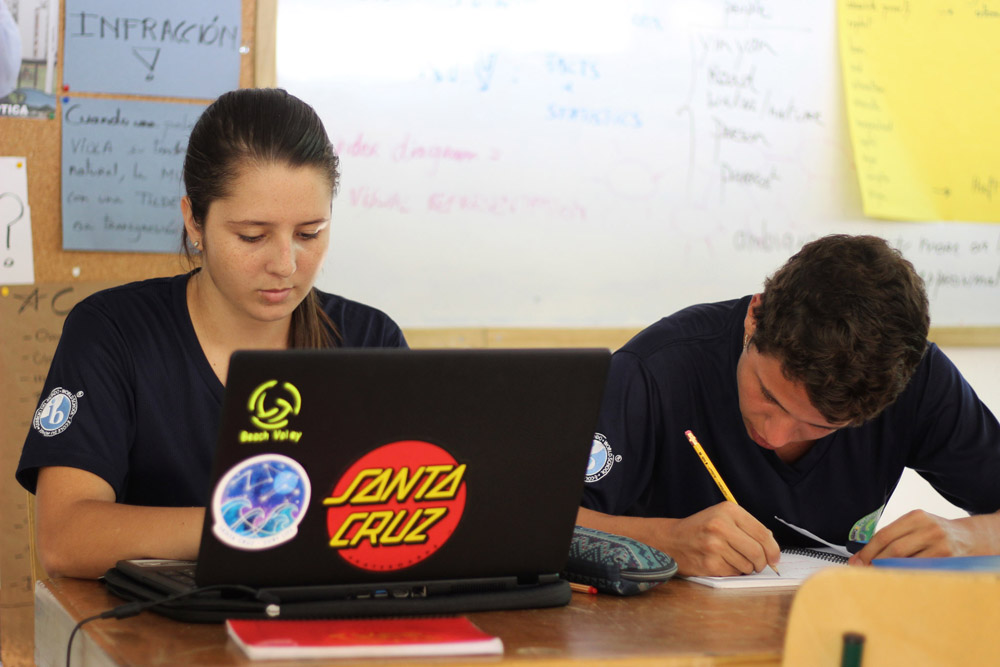
by Stuart Millar, IB coordinator | Oct 18, 2018

One of the exciting things for students about the IB Diploma Program is that they get to choose their subjects. As our first cohort advances to year two, the current tenth graders and their parents attended an informational meeting and started to choose their courses for next year. The program requires them to study the three core subjects: Theory of Knowledge; Creativity, Activity, and Service; and complete the Extended Essay. To ensure breadth of study they are also required to select one subject from each of six different groups: Studies in Language and Literature; Language Acquisition; Individuals and Societies; Experimental Sciences; Mathematics; and the Arts. The majority of options are offered at Standard Level (SL) or Higher Level (HL), with students being required to take their studies deeper with three or four subjects at higher level. It is important to clarify that Futuro Verde offers students the IB course of study over two years in 11th and 12th grade, giving students the opportunity to graduate with a Bilingual IB diploma. Our students can also graduate with the Costa Rican (MEP) diploma as long as students study and successfully pass the national exams in Estudios Sociales and Cívica during 11th grade. It is not possible to study exclusively for the MEP high school diploma at Futuro Verde.
It was exciting to talk with the students and their parents as they made their choices and to hear their plans and reasons for the decisions they made. We wish them luck and look forward to supporting them in the next stage of their high school education.
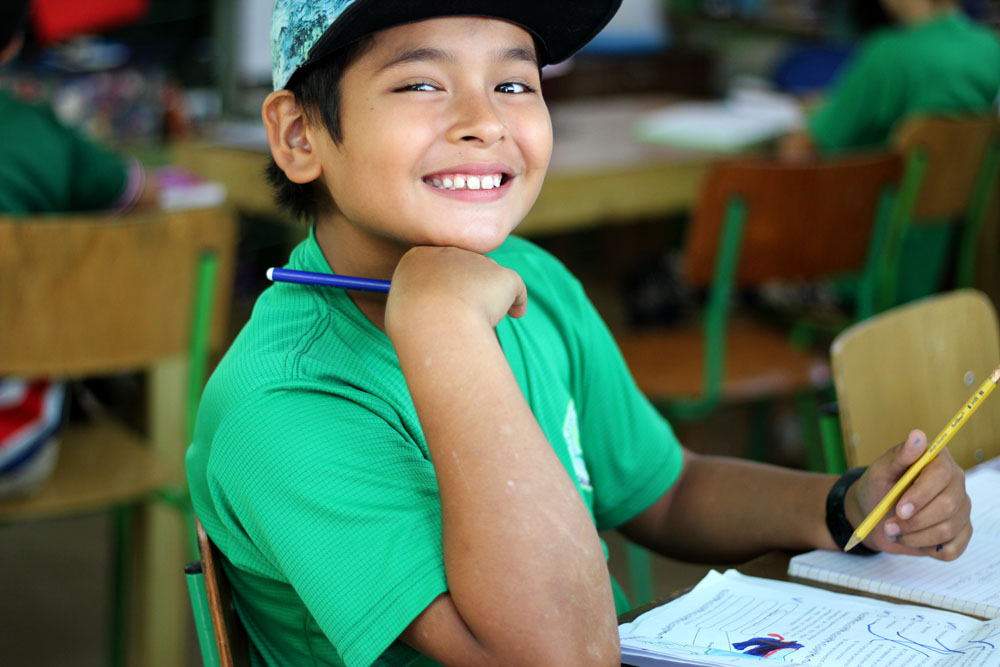
by Lural Ramirez | Oct 10, 2018

With the 2018 school year coming to an end and the 2019 school year already taking shape in the minds of the Futuro Verde leadership team, teachers and current and future parents, I share with you some interesting facts regarding enrollment projections for the coming year! Please note that there are still three months of time remaining for families to enroll students and we usually have significant increases in enrollment over that period of time. Numbers shared today are current to the first week of November.


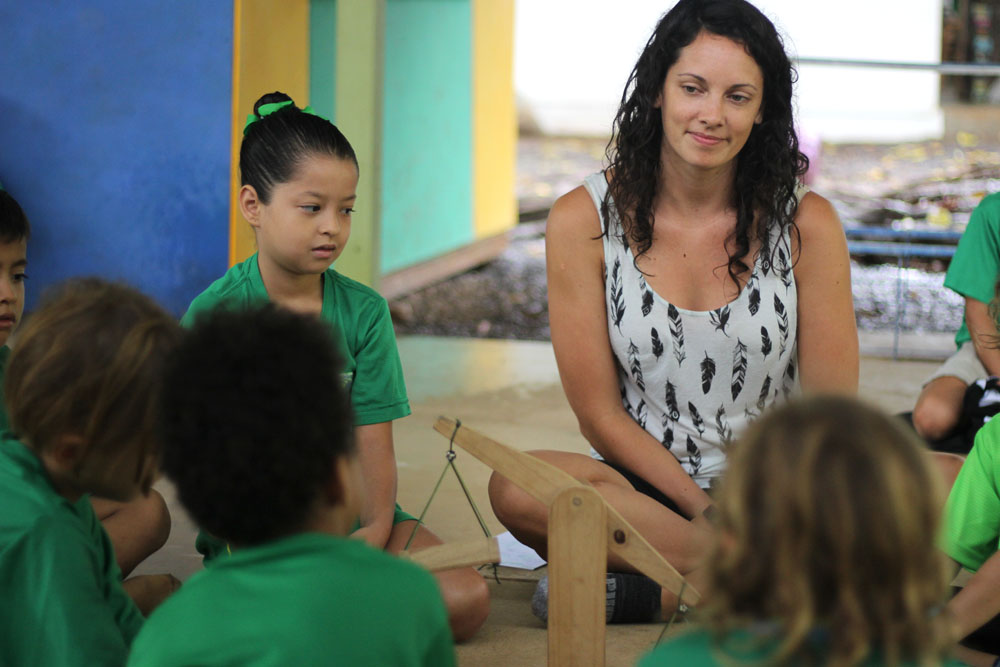
by David Brookshire, MPH/ School Counselor & Special Education Case Manager | Oct 9, 2018

There’s often a debate among parents about which approach is better, permissive parenting or authoritarian parenting. Authoritarians have little tolerance for misbehavior and are considered to be very strict. At the other end of the continuum, permissive parents set very few limits and tend to have more of relaxed approach where anything goes. While both types of parents have the best of intentions for their children, the question often arises, “Which is correct?” When we look at the science, we realize that a balanced approach is most effective if we aim to raise children who become compassionate, responsible, empathetic adults. This means we need to find a balance between permissiveness and setting strict limits and boundaries.
Limits and boundaries are important at every age and stage of childhood and adolescence. A helpful way to think about this is in terms of executive functioning. Executive functioning skills include things like: impulse control, self awareness, emotional control, self management, planning, and organization. These are all skills that successful adults utilize on a daily basis to navigate the world. Interestingly, these skills, performed largely by the prefrontal cortex in our brain, aren’t fully developed until our early 20’s. This is because this area of the brain continues to grow and mature until young adulthood. In the meantime, we can help our children develop these skills by setting appropriate boundaries and limitations.
As toddlers, it’s clear early on that children prefer immediate gratification. If there is something they want, they prefer it now. While this can sometimes be appropriate, often life requires us to wait. If we can learn, when appropriate, to delay gratification, we are enhancing our skills related to impulse control and self management. This, according to research, helps us learn self control and frustration tolerance and even reduces the chances of addiction later in life. These are valuable skills. As children get older and become adolescents, impulse control can be a challenge as teenage brains continue to change and develop. But, if kids have had practice when they are younger, this period of life will be easier for both the child and the parent.
While the specific limits and boundaries change depending on the stage of a child’s life, the concept remains the same. Sometimes as parents, our role is to help our children make decisions and learn how to control their emotions even when this is difficult. We can do this by following through with our expectations and being empathetic. If we want our preschooler to respect others, and they are hurting a friend, we teach them to stop and we teach them to consider how others’ feel. If boundaries are pushed and we are ignored, it would be appropriate to take space, or leave the area until the child is ready to come back and try again. Even if the child is unhappy in the moment because they aren’t getting what they want, eventually they learn social skills and self control. The same can be true for teenagers. Sure we may want to spend hours on electronics, or go hang out with friends but sometimes responsibilities come first. In the long run, as they become kind, empathetic, responsible people who monitor their own choices and consider others around us, they will thank us.
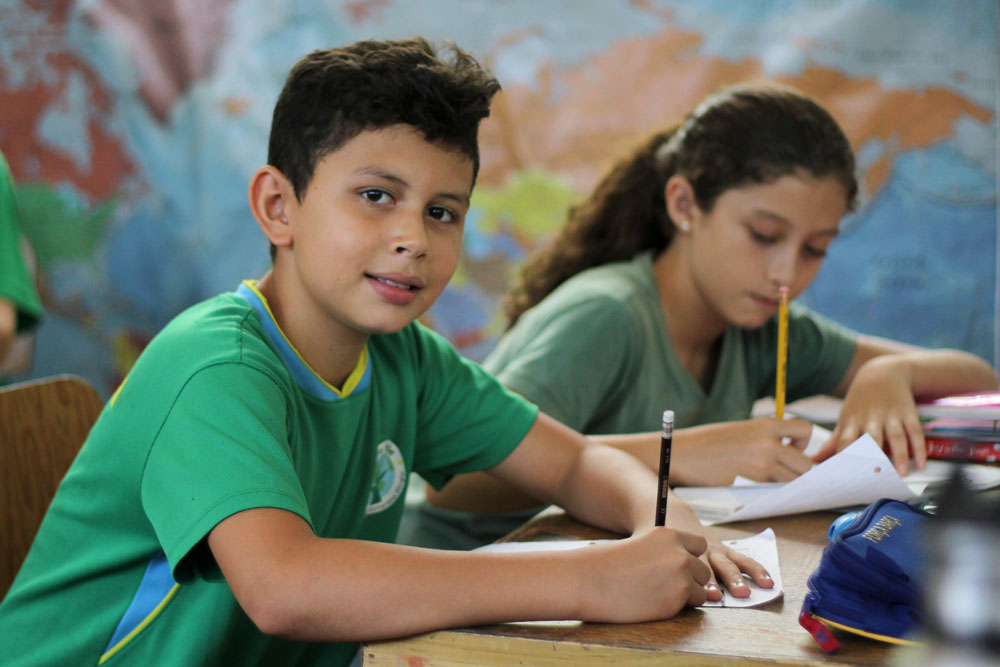
by Lural Ramirez | Sep 20, 2018

Great news! Futuro Verde’s 2019 school calendar has been finalized! Every year our school leadership team works to develop the new school calendar for the coming year. It is a complex process, as we consider the following aspects:
- The minimum 200 school days (student contact and teacher development)
- The legal requirements regarding national holidays
- The most favorable dates for school events, traditions and trimester divisions
- Prioritization of holiday periods favorable to our diverse community’s needs and wants (a vacation period good for North Americans, another for Europeans and yet another favorable to our Tico community)
The talking and planning has come to an end and the 2019 calendar is ready! Key dates are listed here below and your complimentary 2019 calendar magnet will come once all your registration steps have been confirmed!
Feb 5th: First day of school
April 15th-19th: Spring Break
June 24-July 12th: Mid-year vacation
September 23-October 4: Winter vacation
December 12th: Last Day of School
December 13th and 14th: Conferences and grade reports
December 15th: Graduation












